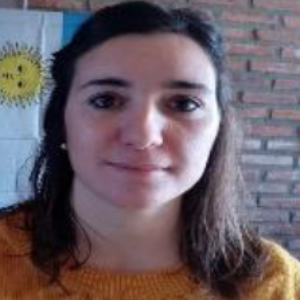Title : Groundwater pollution by herbicides in the Pampean plain, hydrogeological features related and seasonal variations. Cordoba, Argentina
Abstract:
A large part of the territory of Argentina is dedicated to agricultural and livestock production, and is located mainly in the Humid Pampas, an area approximately of 600 000 km2. The predominant crops are soybean, maize, wheat, peanuts and alfalfa among others, with no-tillage farming and intensive use of agrochemicals like fertilizers and pesticides. Regard the seconds, herbicides lead the volume of total consumption, being the most important Glyphosate (N-phosphono-methylglycine) in soybean crops (which suffers microbial biodegradation giving aminomethylphosphonic acid-AMPA, its main metabolite) and Atrazine in maize crops. These compounds are considered as pollutants in surface water and groundwater, arriving by runoff and vertical transport towards the aquifer.
In the study carried out in the province of Cordoba, it was determined that the hydrogeological characteristics influenced the herbicide distribution in the unconfined aquifer. In general, areas with a thin vadose zone and shallow groundwater depth, low hydraulic conductivity and low hydraulic gradient, added to the anthropic factors of herbicide application, allow to define spatially and temporally the increase in the leaching processes of these compounds towards the unconfined aquifer. Also, the lithology of the vadose zone was also critical for atrazine mostly, where in areas with a predominance of coarse-textured sediments (sands and gravels), low clay percentages and lower atrazine Koc, this herbicide exhibits high mobility, which makes possible its transport to the unconfined aquifer at sites with a deep water table (≈25 m below surface).
In addition, the distribution of rainfall in a climate with marked seasonality also defines the concentration of herbicides in the unconfined aquifer and surface water (higher in wet seasons) due the coexistence of the season with the highest rainfall, the time spray period and the recharge of the aquifer system.
The detection of herbicides in the unconfined aquifer shows that the application for decades under the prevailing agricultural model exceeds the degradation potential of the soil and the unsaturated zone, causing groundwater pollution.


